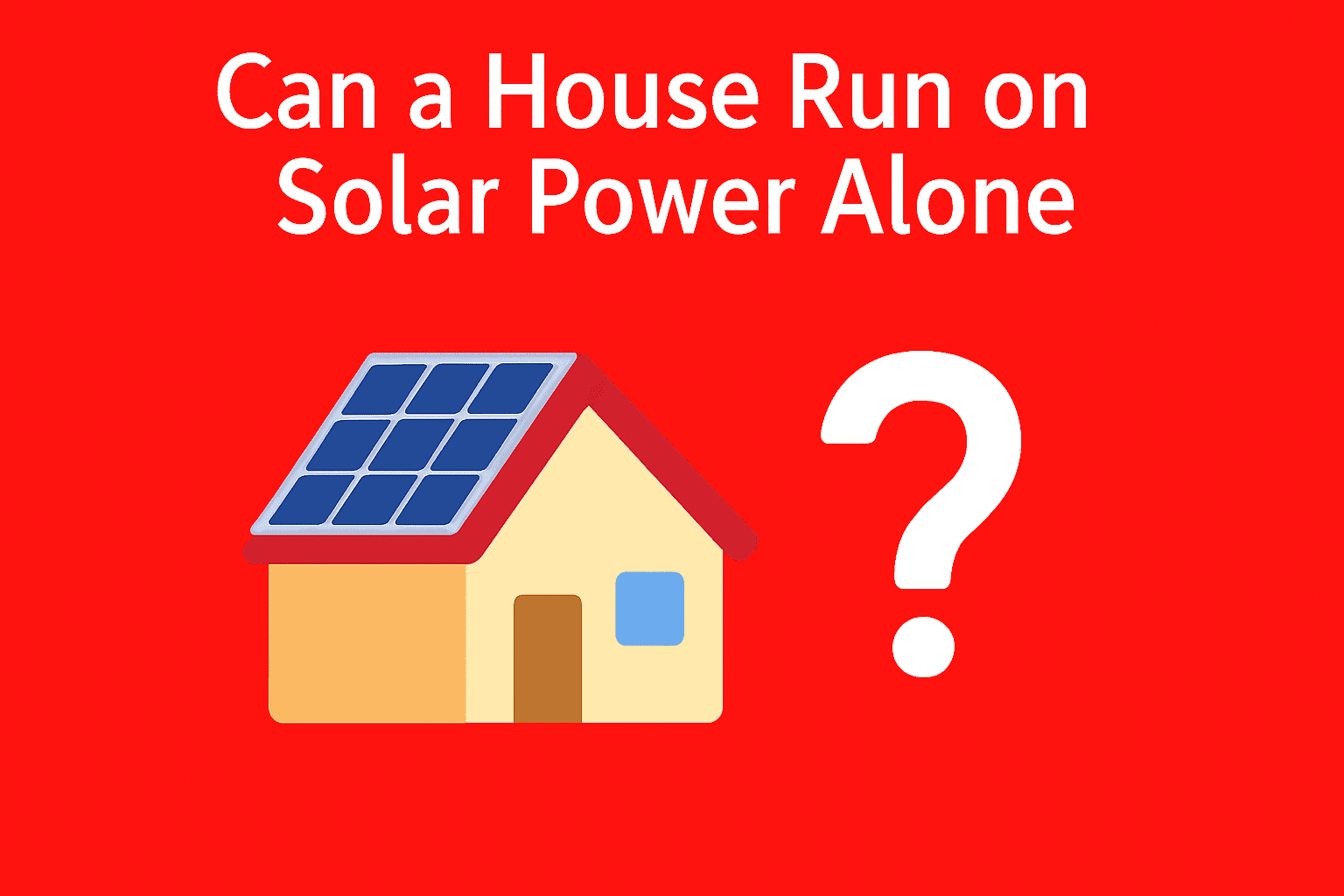It’s a question more homeowners are asking today, and for good reason.
With rising electricity bills and growing climate concerns, many are wondering — can solar energy really power my entire home without any backup from the grid?
The answer is yes, it is possible to run a house on solar power alone. But it depends on several key factors like your energy usage, system size, battery storage, and where you live. Let’s break it all down.
How to Run Your Whole House on Solar Energy
Running your entire home on solar requires three key components:
- A well-sized solar panel system
- A battery storage system for night and backup use
- Efficient energy consumption habits and home design
Your solar system needs to produce enough electricity during the day to meet your needs and also charge the battery for use at night. That’s where accurate system design and professional consultation become crucial.
How Many Solar Panels Do I Need to Run My Whole House?
The number of panels depends on your household’s average daily power consumption and the wattage of the panels you choose.
- A typical Indian home consumes between 8 to 15 kWh/day
- Standard solar panels generate around 1.2 to 1.5 kWh/day per panel
- So, you may need 8 to 14 panels for partial supply
- For complete independence from the grid, you’ll likely need 15 to 25 panels, depending on location and efficiency
If you’re in a city with good sunlight throughout the year, like Coimbatore or Jaipur, you may need fewer panels compared to areas with more cloud cover.
Types of Solar Panels for Homes
There are three main types of solar panels used in residential systems:
- Monocrystalline Panels: Most efficient, compact, and long-lasting
- Polycrystalline Panels: More budget-friendly with slightly lower efficiency
- Thin-Film Panels: Lightweight, but lower efficiency and shorter lifespan
For homeowners looking to run their house on solar alone, monocrystalline is usually the best choice due to higher energy output in limited roof space.
Do Solar Panels Work at Night?
No, solar panels do not generate electricity at night.
They only produce power when sunlight is available.
That’s why battery storage becomes essential if you want to go completely off-grid. During the day, solar panels charge the battery, which then powers your home at night or during cloudy periods.
How Much Do Solar Panels Cost for a 1000 Square Foot House?
Costs can vary based on system size, panel type, and whether battery storage is included. As of now:
- A basic grid-tied system may cost around ₹1.2 to ₹1.8 lakhs
- A full off-grid system with batteries may cost between ₹2.5 to ₹4.5 lakhs
These are ballpark figures, and the exact price depends on location, brand, and government subsidies.
What Is the Subsidy for Solar Panels?
The (Ministry of New and Renewable Energy) MNRE offers subsidies to make solar more affordable for Indian homeowners.
As of the latest guidelines:
- Households can get up to ₹18,000 per kW for systems up to 3 kW
- For larger systems up to 10 kW, the subsidy is available but at a slightly lower rate per kW
- The scheme is applied through registered vendors under the National Solar Rooftop Portal
This significantly reduces upfront costs and improves your return on investment. Always ensure you work with a certified installer under MNRE to avail of these benefits.
Is It Worth Getting a Battery with Solar Panels?
If your goal is to power your home fully with solar, yes, a battery is essential.
Here’s why:
- It stores excess energy produced during the day
- It powers your home at night or during grid outages
- It helps you become less reliant on utility companies
While batteries do add to the initial cost, they provide energy independence, backup security, and long-term savings.
What Are the Cons of Solar Power?
While solar is highly beneficial, there are a few challenges to consider:
- Upfront cost can be high without subsidies
- Battery storage systems are expensive and need space
- Energy production varies by weather and location
- Roof space limitations can affect system size
However, these challenges are manageable with the right guidance from the best solar company in India that understands your needs and environment.
Why Is Solar Power Important?
Solar power is more than just a personal investment — it’s a global solution.
- It reduces your carbon footprint
- It helps fight climate change
- It cuts dependency on fossil fuels
- It supports cleaner, healthier communities
And from a financial point of view, it reduces electricity bills and increases the long-term value of your property.
Final Thoughts: Yes, Your Home Can Run on Solar Alone
Going fully solar isn’t a dream — it’s already happening in many homes across India.
With smart planning, the right number of panels, and efficient energy use, you can run your house on solar power alone.

